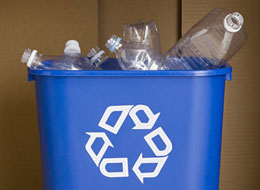
It’s typhoon season in the Philippines and flooding ensues in the larger part of the national capital region (NCR) where most of the country’s key financial, institutional and commercial establishments are located.
Earlier in June, heavy rains caused flooding in the metropolis, and once again plastic bags were put in the limelight, prompting a review of the effectiveness of plastic bags ban in districts implementing it..
Reports said that Makati City, NCR’s major financial district has imposed a total plastic bag ban ordinance and recently has deployed 49 monitoring teams led by the Plastic Monitoring Task Force (PMTF) and the Department of Environmental Services (DES) to ensure that establishments comply with the Plastic Regulation Order, which took effect in June last year.
The teams have scoured various establishments including supermarkets, public markets, shopping malls and fast food shops to spot violations.
A nine-month grace period for compliance with a provision in the Solid Waste Management Code of Makati has been given to establishments and which ended in December. However, the local government of Makati has extended the grace period for establishments to completely use up their plastic stocks.
Individual violators will be fined Php1,000 (about US$25) or five to thirty-day imprisonment , or both; while violating corporations or establishments will be fined Php5,000 (about US$125), five to thirty-day and/or fine for the owner. Business permit may also be revoked.
Only biodegradable packaging materials such as those made from paper, cloth , and natural fibres are allowed to be used. Categorically, plastics for “primary” packaging, defined as “first level product packaging that contains the item sold” ;and “secondary” packaging material, defined as “those used to provide support for wet goods with primary packaging” are exempted from the ban.
Products that are plastic bottled and in plastic sachet; or those wrapped in plastics with thickness of 15 microns above, are also exempted.
Recovery bins marked containers for collecting and disposing plastic bags are required to be placed at entrances and exits of establishments and other places accessible to the community.
The prohibition on the use, sale and distribution of plastics and otyher non-biodegradable materials such as polystyrene as packaging materials are enforced under the Executive Order No. 007 series of 2012.
Not sold on plastic ban
The Manila-based Philippine Chamber of Commerce and Industry (PCCI), the country’s largest business association, is not amenable to the plastic ban but rather urges for a stricter waste management
The group says that waste management efforts in the cities must be enforced, including stricter implementation of anti-littering and waste segregation/collection measures. A total ban on the use of plastic bags can cripple the local plastics industry in the long term – affecting its 300 manufacturers and the workers, estimated at 175,000, says PCCI, adding that about 20% of the workforce are already affected.
Further, the group says that concerned sectors from the Government to the business may pull together a mechanism for effective waste management to address clogged water ways that worsen the city’s flooding problem.
Quezon City, a major commercial district in the NCR is not implementing a ban. It only regulates plastic bags use and through its Plastic Bag Reduction Ordinance, imposes a Php2 (about US$0.05) “recovery system fee” for each bag use. This fee goes into the “green fund”, which will be allotted for various environmental activities.
Plastic packaging, which are used for wrapping fresh foods and cooked foods are exempted from the regulation.
Meanwhile, The Metro Manila Development Authority (MMDA) has called for a metro-wide ban of plastic bags. Earlier, the agency, which recently reported a 5% reduction in the 9,000 metric tonne-volume of waste disposals in Metro Manila over the past two years, said that it expected the 17 cities in Metro Manila to implement plastic bags ban by this year.
The plastic bag ban has been an ongoing debate amongst the local industry players and environmental groups that it has peaked last year when some 14 industry groups vehemently aired their dismay through the media over the widening sentiments against plastics and polystyrene packaging.
(PRA)












